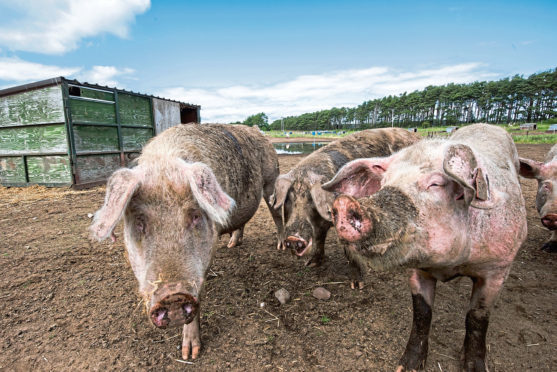Focusing on the UK’s reputation for excellent animal welfare will help pig and poultry producers respond to the opportunities and challenges created by Brexit, according to sector experts.
Despite uncertainties around trade and the future of farm policy, farmers should be thinking about how they might be able to drive productivity and efficiencies, industry leaders said.
And sharing the story of the UK’s high standards of animal welfare, as well as working to further improve supply chain transparencies, should help producers take advantage of new market opportunities.
Speaking at the Pig and Poultry Fair, Mark Williams, chief executive of the British Egg Industry Council, said the UK egg sector had seen significant growth in recent years, with layer bird numbers increasing to 40 million from 33m in 2012.
However with imports accounting for 14% of the eggs consumed in the UK, there was still potential for further growth – provided that expansion was responsible and focused on high-welfare production systems.
“With Brexit we have a real opportunity to place imports with UK-produced eggs,” he told delegates.
“But we are not saying go and expand willy-nilly because we don’t want to go oversupply. We need to respond in a responsible way.”
Richard Pearson, head of agriculture at Chippindale Foods, agreed that welfare had to remain a strong part of UK poultry production’s story if potential for growth was to be achieved.
That included working harder across the supply chain to improve transparency, he said.
“For retailers transparency is the new green – field to fork provenance is the norm. Having that story will help mitigate negative pressure from animal rights campaigners,” he said.
In the pig sector Andrew Saunders of Tulip Foods said the high welfare story of UK pigmeat would help pig producers grasp opportunities created by Brexit to trade with countries outside Europe.
He said: “There are growing markets who share our interest in high welfare standards, and I encourage you to think about where we can do more.”
Provided UK producers could drive efficiencies remain competitive, there were “massive opportunities” to sell more British pigmeat around the world, he added.
Mr Saunders said: “There’s a lot more we can do with our existing herd rather than expanding it to 100,000 sows. Growing numbers brings up all sorts of questions around where they would go and who would do it. The better idea is to drive productivity and efficiency – that’s where the potential lies.”
